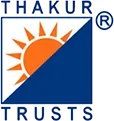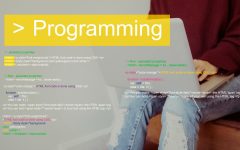From Coding to Cloud Computing: What You Can Expect in a B.Sc. Computer Science Program
July 10, 2025 2026-01-20 14:56From Coding to Cloud Computing: What You Can Expect in a B.Sc. Computer Science Program

From Coding to Cloud Computing: What You Can Expect in a B.Sc. Computer Science Program
The world is powered by code — and not only in your laptop or phone. It fuels the global financial system, self-driving cars, streaming services, wearable fitness trackers, and even the way your coffee is delivered. All this innovation is driven by the computer scientists who create, build, protect, and grow the technology we take for granted every day.
If you are considering studying a B.Sc. in Computer Science, you are not merely selecting a degree — you are entering one of the most exciting, future-proof careers on the planet. But what is a modern computer science course all about? Is it merely coding? How does it involve topics like cloud computing, AI, and cybersecurity?
This blog simplifies it all. Whether you are a student deciding or someone interested in learning where a CS degree can lead, here’s an in-depth look at the skills, tools, and technologies you’ll know from your first year through your last.
1. It All Begins with Code — But That’s Only the Beginning
Programming is the gateway, the first thing you’ll learn — and one you’ll continue to hone. But a computer science degree doesn’t stop at teaching you how to code. It teaches you how to think like a coder: analysing problems, automating processes, and building solutions that scale.
You’ll learn:
- Several programming languages (such as Python, Java, C++, JavaScript)
- Logical thinking and debugging
- Writing clean, modular, maintainable code
- Problem-solving using algorithmic thinking
It’s not about memorizing syntax — it’s about learning how to turn complex problems into working solutions.
2. Math Isn’t Optional — It’s the Engine Behind the Magic
Want to train an AI model? Build an algorithm for route optimization? Create realistic game physics? You’ll need math — and lots of it.
Core areas include:
- Discrete Mathematics (logic, sets, combinatorics)
- Linear Algebra (used in computer graphics, ML)
- Calculus (useful in simulations and AI)
- Probability & Statistics (a must for data science and machine learning)
While programming may be the steering wheel, math is the engine. It powers everything from animations to algorithms.
3. Data Structures & Algorithms: Your Technical Toolkit
Before you can build anything useful, you must know how computers store and process data. That’s where data structures and algorithms enter the picture — the bread and butter of technical interviews and everyday problem solving.
You’ll master:
- Arrays, stacks, queues, trees, and graphs
- Searching, sorting, and optimization algorithms
- Time and space complexity (Big-O notation)
- Recursion and dynamic programming
These topics are not just academic. They’re what top tech companies test for — and what great software is built on.
4. Software Engineering: Building Real-World Systems
You won’t just build small scripts in a CS degree — you’ll architect entire systems.
You’ll explore:
- Software development methodologies (Agile, Scrum, Waterfall)
- Object-Oriented Programming (OOP)
- Design patterns, testing, and debugging
- Version control (Git) and team work flows
By your last year, you’ll probably work on a capstone project — creating software for a real-world issue, usually in groups, as in the industry.
5. The Front-End, the Back-End — and Everything Between
Web and mobile development are essential skills for contemporary developers. You’ll study how to develop anything from clean-looking interfaces to high-powered back-end services.
Look to learn:
- Front-end: HTML, CSS, JavaScript, React
- Back-end: Node.js, Django, or PHP
- Databases: MySQL, PostgreSQL, MongoDB
- App Development: Android (Java/Kotlin), iOS (Swift)
This step of your journey brings your code and logic to life — into apps, websites, and platforms that users can touch and feel.
6. Databases: Where Your Data Lives
Whether you create an app, a website, or even a game, you’ll have to store and fetch data. Databases are how your app “remembers” users, transactions, or messages.
You’ll learn:
- Relational databases (SQL) and NoSQL alternatives (MongoDB, Firebase)
- Data modelling and normalization
- Transaction management and ACID properties
- Indexing, querying, and database optimization
This knowledge forms the backbone of scalable applications — from e-commerce to social media.
7. Cybersecurity: Because the Internet is Not a Safe Place
In a world of rising digital threats, every system needs to be secure by design. That’s why modern CS programs now include cybersecurity training.
You’ll explore:
- Encryption, authentication, and digital signatures
- Network security and firewalls
- Ethical hacking and penetration testing
- Secure software development practices
With cybercrime rising worldwide, cybersecurity is no longer a nicety — it’s mission-critical.
8. AI and Machine Learning: Programming Computers to Think
Artificial Intelligence is not just a buzzword — it’s here now, driving your suggestions, voice helpers, and smart search. A B.Sc. in CS provides the grounding to grasp and work with this awesome technology.
Topics include:
- Supervised and unsupervised learning
- Decision trees, neural networks, and clustering
- Natural Language Processing (NLP)
- Real-world applications: image recognition, chatbots, recommendation systems
You’ll probably play around with libraries such as TensorFlow, PyTorch, and Scikit-Learn — getting you ML experience for real.
9. Cloud Computing: The Future Is Distributed
Software running on a single machine is a relic of the past. Cloud platforms enable you to create systems that are scalable, global, and fault-tolerant.
You’ll work with:
- Cloud providers: AWS, Microsoft Azure, Google Cloud
- Storage, compute services, and networking in the cloud
- Virtual machines, containers (Docker), and orchestration (Kubernetes)
- DevOps practices and CI/CD pipelines
Being aware of cloud technologies is no longer a plus — it’s going to be the norm in how software gets built and deployed.
10. Beyond the Classroom: Internships, Hackathons, and Projects
Great B.Sc. Computer Science programs don’t limit themselves to theory. They get you out into the real world — through:
- Internships with tech firms
- Hackathons and coding challenges
- Contributing to open-source projects
- Portfolio projects
This is where your talents really come of age — in practical, unpredictable, high-pressure settings that mirror the field.
Conclusion: A Degree That’s as Dynamic as the Industry
A B.Sc. in Computer Science isn’t a matter of memorizing syntax or constructing calculators. It’s learning to think, to solve worldwide issues, and create the tools that will define the future.
From the very first line of code to the deployment of cloud-native applications, this degree provides a dynamic, fulfilling path of study that can lead to careers in:
- Software Development
- Data Science
- Cybersecurity
- Cloud Engineering
- Artificial Intelligence
- Game Development
- And beyond.
No matter what gets you excited about building, analysing, defending, or optimizing, computer science provides the stage on which to make an impact — algorithm by algorithm.
Ready to start? The future is not only digital — it’s programmable. And it may just begin with your very first line of code.
Related Posts
How to Start Freelancing While Studying
The Future of Tech Careers for UG Students
Coding and Programming Tips for Beginners
Time for Hobbies: Why It Matters in College
Entrepreneurship Ideas for College Students
Search
Categories









